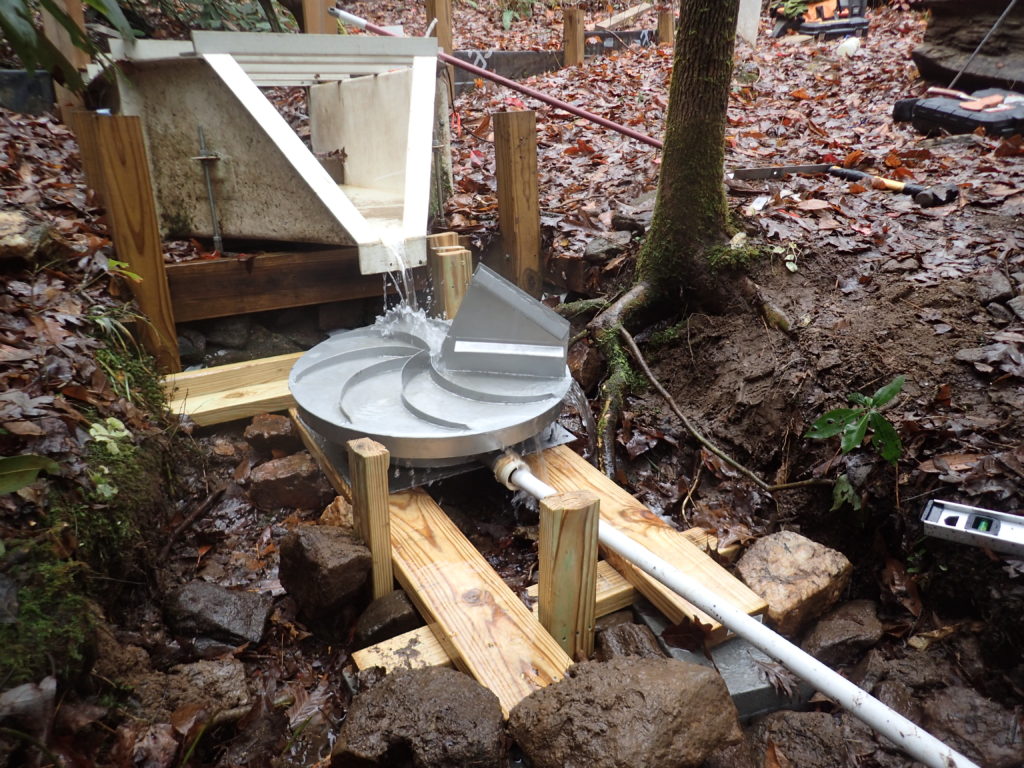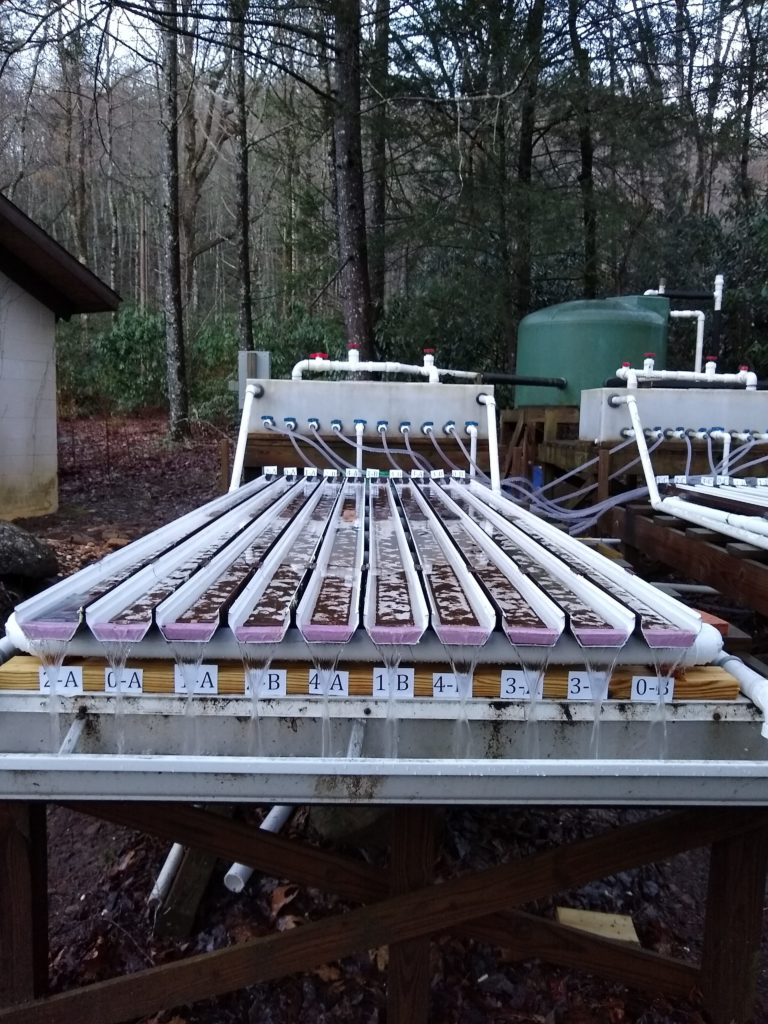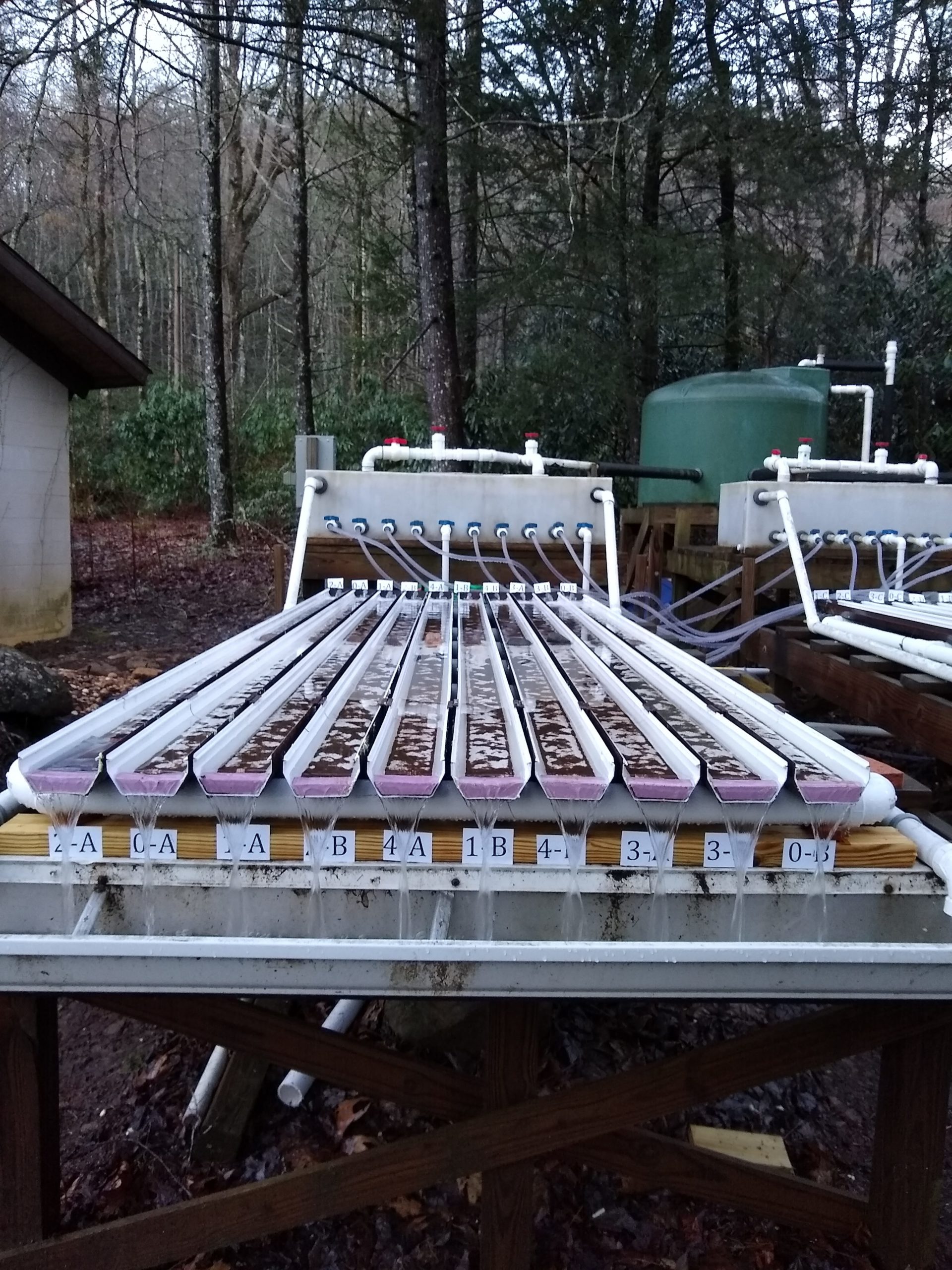This research addresses the following questions:
- What are the consequences of climate warming on terrestrial carbon processing in streams?
- Do responses to warming follow the predictions of the Metabolic Theory of Ecology?
Project overview
To determine how stream warming due to climate change and land use change will affect stream organisms and function, we are testing, quantifying and modeling effects of stream warming on ecosystem functions in detritus-based streams. This NSF-funded project is a collaboration between the University of Georgia (UGA), University of Alabama, Coastal Carolina University, University of Connecticut, and Virginia Tech.
Stream warming experiments
The UGA-based work is to understand and make predictions of the consequences of climate warming for the processing of terrestrial organic carbon in detritus-based streams. We are testing how warming affects the rates of organic matter processing and ultimately the fates of that carbon in headwater stream ecosystems. Moreover, we quantify the relative contributions of microorganisms vs metazoan detritivores to carbon loss, and how those assemblages respond to elevated stream temperatures (Tomczyk et al. 2023a, Tomczyk et al. 2022b).


We have conducted a series of experiments, sampling, and modeling of temperature effects at different scales, ranging from whole-stream manipulations, stream-side channel experiments, and landscape-scale synoptic sampling.
We have determined warming effects on whole-stream carbon budgets, litter decomposition, and the physiology of stream organisms. With collaborators, we developed databases of thermal conditions in streams and associated interpretive tools (e.g., maps, temporal patterns) that show effects of land use and other stressors on stream thermal regimes.
